
News from Nashville
Proposals to amend state constitution advance
Giving judges more discretion to deny bail for violent crimes
Members in the Senate Judiciary Committee approved a new proposal to expand judges’ ability to deny bail for certain violent crimes when it is in the best interest of public safety. Current law limits judges’ ability to deny bail to first-degree murder charges. If ratified by voters, Senate Joint Resolution 919 would allow judges to deny bail for those charged with violent offenses of terrorism, second-degree murder, aggravated rape and grave torture. It would also allow judges to deny bail for violent offenses that would require the defendant, if convicted, to serve at least 85 percent of their entire sentence under the state’s Truth in Sentencing law.
Under the measure, judges could only deny bail when the proof is evident or the presumption of guilt is great. It also would require judges to place into the record the reason for denying bail. The resolution now advances to the Senate floor to be read and voted on by the full Senate.
Prohibiting a state property tax
The Judiciary Committee also advanced another proposed constitutional amendment which would prohibit a state property tax. Tennessee has not had a state property tax since 1949, and House Joint Resolution 81 seeks to ensure that one can never be implemented by a future General Assembly.
Tennessee used to operate solely with a state property tax and had no sales tax. That changed in 1949, when Governor McWherter helped pass a state sales tax for education and reduced the state property tax to zero.
The resolution was passed by the House of Representatives in the 2023 legislative session. It now advances to the Senate floor to be considered by the full Senate for the first time.
Marsy’s Law
A constitutional amendment to guarantee victims of crime have clear and enforceable rights passed the full senate last week to fulfill the first of two required passages before going to voters. House Joint Resolution 94 would add Marsy’s Law to the Tennessee Constitution to support crime victims and prevent further trauma. It aims to give constitutional protections to victims, including the right to be heard, the right to be informed, and the right to be treated with fairness, dignity, and respect through the judicial process. The resolution was passed by the House of Representatives in the 2023 legislative session.
In order to ratify the constitution, a constitutional amendment must pass the general assembly twice. The first time it must pass with a simple majority voting in favor. The second time it must pass the next General Assembly by a two-thirds majority. Finally, the amendment would become part of the state constitution if the number of yes votes are equal to a majority of the total votes in the gubernatorial election.
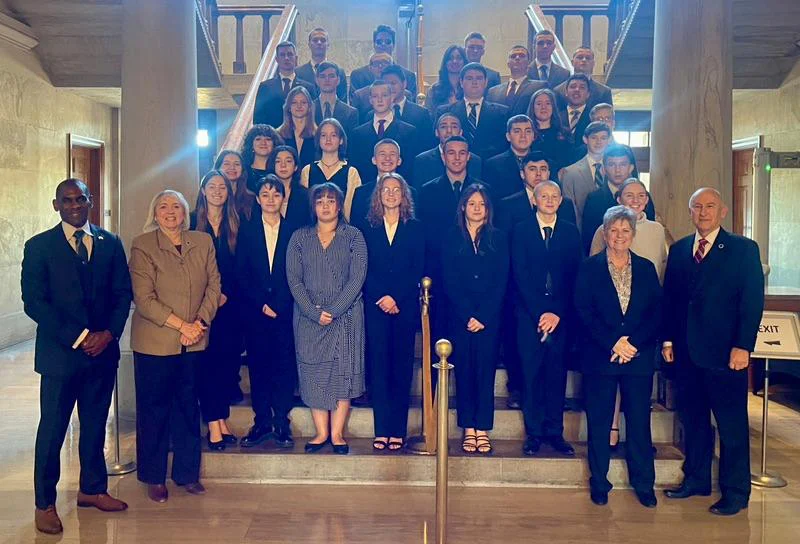
In brief…
Lawmakers seek to prohibit taxpayer-funded ransomware payments
A proposal advanced unanimously in the Senate State and Local Government Committee which would ensure taxpayer funds are not on the hook for ransom payments to cyber criminals holding sensitive and private data hostage.
Senate Bill 1825 would prohibit all state entities from contracting, negotiating with or paying an individual or entity that is a known system hacker. The proposed legislation instructs state entities to immediately notify and consult with the Tennessee Bureau of Investigation in the case of a cyber-attack.
Cybercriminals have increasingly targeted U.S. federal and state government agencies around the nation in recent years, attacking critical emergency alert systems and stealing citizens’ private data. The disruptions are costly and recovery of data is challenging.
Ransomware is a type of malware designed to encrypt files on a device or computer, rendering them and their connected systems unusable, according to the Cybersecurity and Infrastructure Security Agency (CISA), an arm of the U.S. Department of Homeland Security. The agency launched stopransomeware.gov in 2023 to help organizations reduce their risk of ransomware.
Legislation advances to hold parents accountable for child’s delinquent actions
The Parent Accountability Act aimed at creating accountability for parents with delinquent children. Under the legislation, judges would have the discretion to fine parents or guardians instead of the child for their delinquent actions after their first offense.
If the parent is unable to pay the fine, community service is an alternative option. Senate Bill 2571 passed the Senate Judiciary Committee last week and advances to the Senate Finance Committee.
Increasing transparency in juvenile courts
Senate Bill 2059, which promotes more transparency in the juvenile court system, requires the Administrative Office of the Courts to submit reports on juvenile courts that are noncompliant with statewide data collection requirements. These annual reports would list each court that is not in compliance, the date of the noncompliance, and what could be done for the court to be back in compliance.
The bill passed the Senate Judiciary Committee last Tuesday and awaits final consideration from the full Senate.
Removing vaccine requirements for families that adopt and foster children
Last week, the Senate Judiciary Committee advanced legislation aimed at increasing the number of Tennessee families eligible to adopt and foster children. It safeguards the rights of families to adopt or foster without facing mandates regarding specific vaccinations.
Senate Bill 2359 prohibits the Department of Children’s Services from mandating certain vaccines as a condition of adopting or caring for a foster child. The bill eliminates discrimination while also providing more children with homes in Tennessee.
The current law disqualifies families from fostering and/or adopting a child in state care if any member of their family objects to an immunization on the basis of religious or moral convictions.
The bill passed the Senate Judiciary Committee and awaits final consideration by the full Senate.

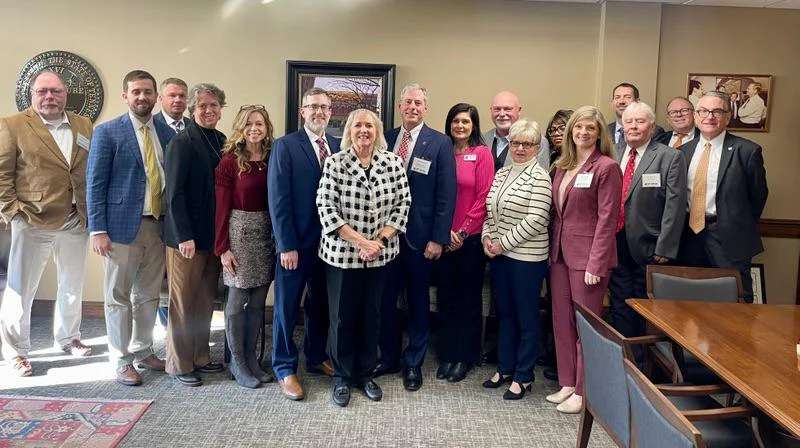
their work in Tennessee.
Protecting schools and preparing teachers
As school safety continues to be a top priority for Tennessee lawmakers, legislators are working hard to ensure all school staff, including substitute teachers, are equipped with the training necessary to protect their students. Last Wednesday, the Senate Education Committee advanced Senate Bill 2652 which would require school safety training for incoming substitute teachers. The bill now moves forward for approval on the Senate floor.
Requiring carbon monoxide detectors in daycares
To ensure the safety of children in childcare facilities across Tennessee, legislation has been proposed that would require childcare facilities in Tennessee to have carbon monoxide detectors installed in every room. The legislation follows an incident at a childcare facility that resulted in the building being evacuated due to high carbon monoxide levels. The facility did not have carbon monoxide detectors and many children were exposed to dangerous levels of carbon monoxide. Senate Bill 2066 will help prevent similar incidents in the future and ensure children do not suffer the long-term effects of carbon monoxide poisoning. The bill passed the Senate Health and Welfare Committee and advances to the Senate floor for final consideration.
Reports of animal abuse
Senate Bill 1957 will allow veterinarians in Tennessee to report suspected animal cruelty and testify in judicial proceedings regarding that animal’s care without violating veterinarian-client-patient confidentiality. A veterinarian would also have immunity from any breach of confidentiality under this legislation if they are acting in good faith reporting the suspected abuse. The bill awaits final consideration on the Senate floor.
Expediting development processes
Tennessee has experienced a construction boom in recent decades, since becoming such a popular destination for businesses and people to move. As a result, the construction permitting and inspection process is facing a significant backlog. To reduce development costs and streamline construction projects for Tennesseans, Senate Bill 2100 would allow a third party examiner, inspector, engineer, or professional to inspect certain processes. Currently, all processes must be inspected by a state or local examiner, which delays construction projects when none are available. The bill passed Commerce and Labor and now awaits approval on the Senate floor.
Social Work Licensure Compact
To increase access to quality social workers Senate Bill 2134 will establish the Social Work Licensure Compact. The legislation, which passed the Senate Government Operations Committee, seeks to enable social workers who are qualified to work in other states participating in the compact to work in Tennessee. Two states have already ratified the Compact. This legislation puts the framework in place for the compact to go into effect when seven states ratify the Compact.
Support for parents
Last Tuesday, the Senate Judiciary Committee advanced legislation that would expand parents’ right to video call their child when in the custody of the other parent. Senate Bill 2744 ensures parents get face-to-face contact with their child at least twice a week according to their parenting plan. This bill advances to the Senate floor.
Advocacy for children with trauma
Legislation would allow courts to add trauma-informed education as a requirement in a parenting plan when children have been removed from their homes in cases of dependency or neglect. Children that have experienced trauma can suffer from learning problems, lower grades and a variety of other problems.
Senate Bill 613 passed the Judiciary Committee and advances to the Senate floor for final consideration.
Supporting emergency transport services for TennCare recipients
Under Senate Bill 2168, TennCare will be required to reimburse an ambulance service provider servicing TennCare patients at a rate no less than 100% of the program’s allowable charge for participating providers. In addition, the bill adds that for-profit ambulance services are eligible to receive emergency medical services equipment grants. The bill moves to the Senate floor for final consideration.
Another bill will require TennCare to reimburse a public or private air ambulance service that bills for transports to TennCare recipients at a rate not less than 67.5% of the federal medicare program’s allowable charge for participating providers. Senate Bill 2921 also passed out of the Senate Health and Welfare Committee and moves to the Senate Finance Committee.
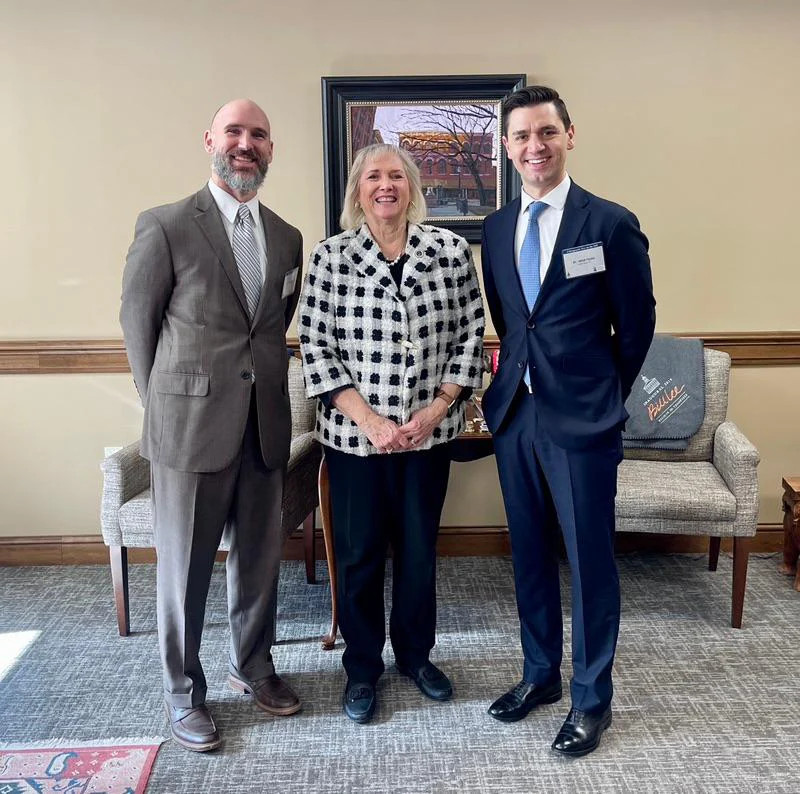
of the Tennessee Chiropractors Day on the Hill.

Day on the Hill.
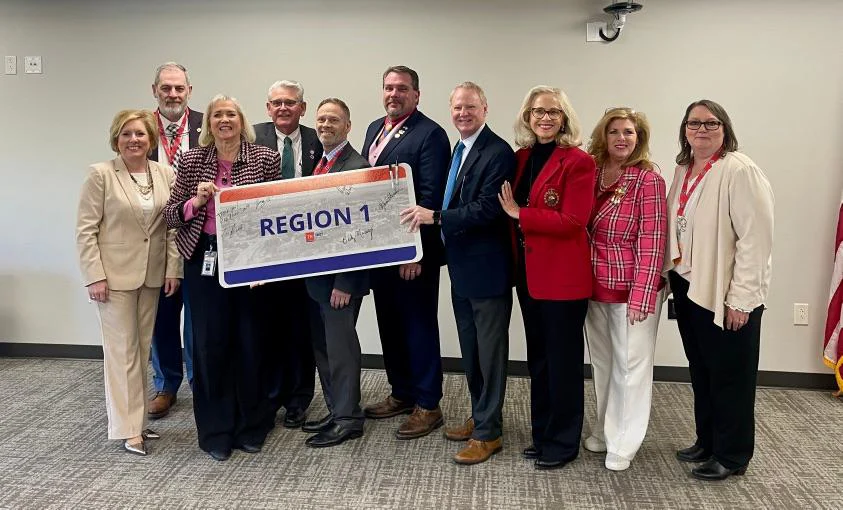
Commissioner Butch Eley.
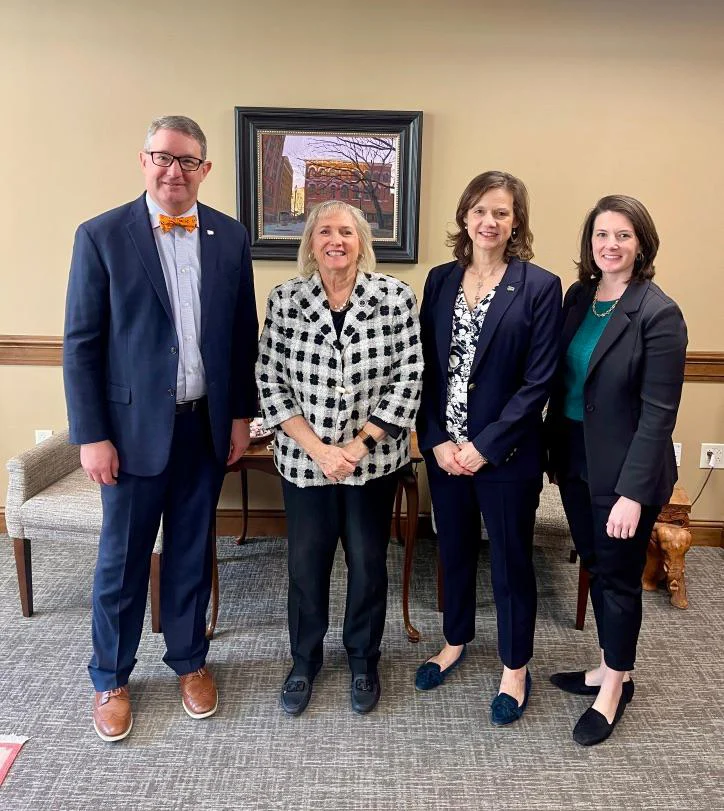
my office while they were in Nashville.
Legislation I’m Sponsoring
Print Disability Absentee Voting Act
In an effort to increase voter participation among those with print disability, I am sponsoring Senate Bill 2118 which will direct the coordinator of elections to make absentee ballots more accessible to voters who are blind and those with other print disabilities. Print disability is defined as a disability that interferes with a person’s ability to read, write, or use printed materials.
The Senate State and Local Government Committee heard testimony from an individual with print disability who described that due to his disability and accessibility of voting in Tennessee, he was not able to vote in private or keep his vote confidential. Every individual has the right to a private vote, and with the Print Disability Absentee Voting Act, individuals with print disability will have more access to privacy and confidentiality while voting. The bill now advances to the Senate floor.
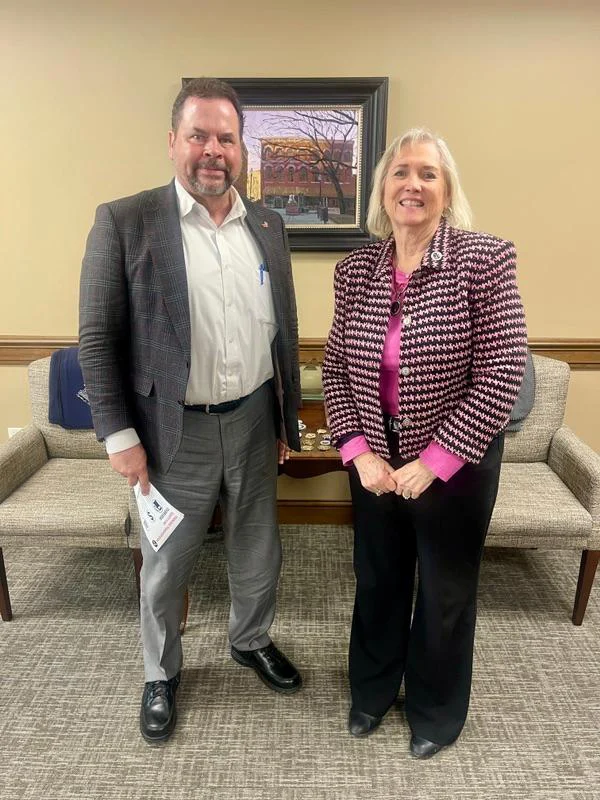
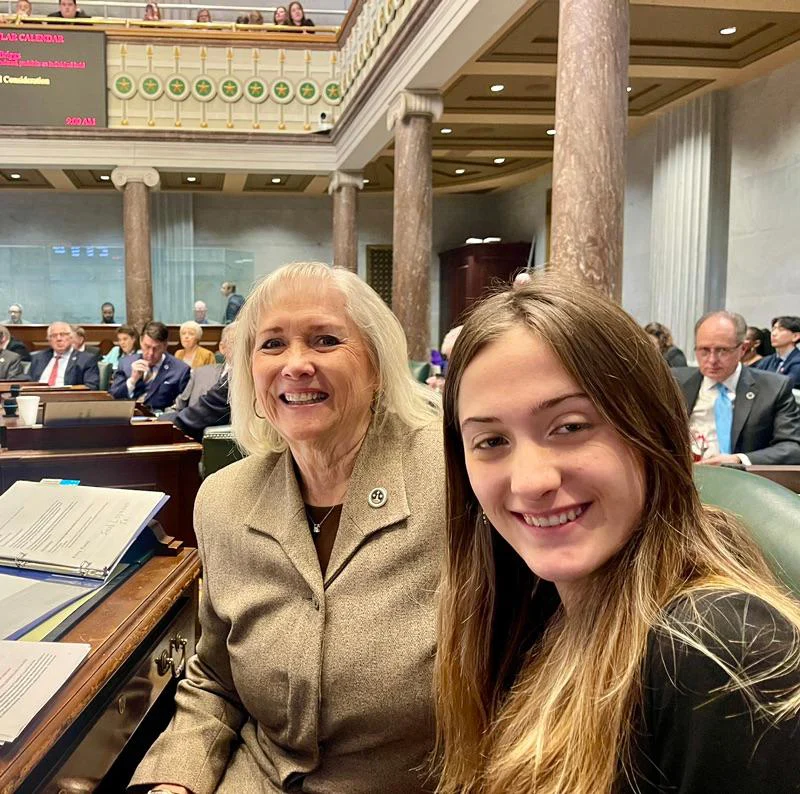
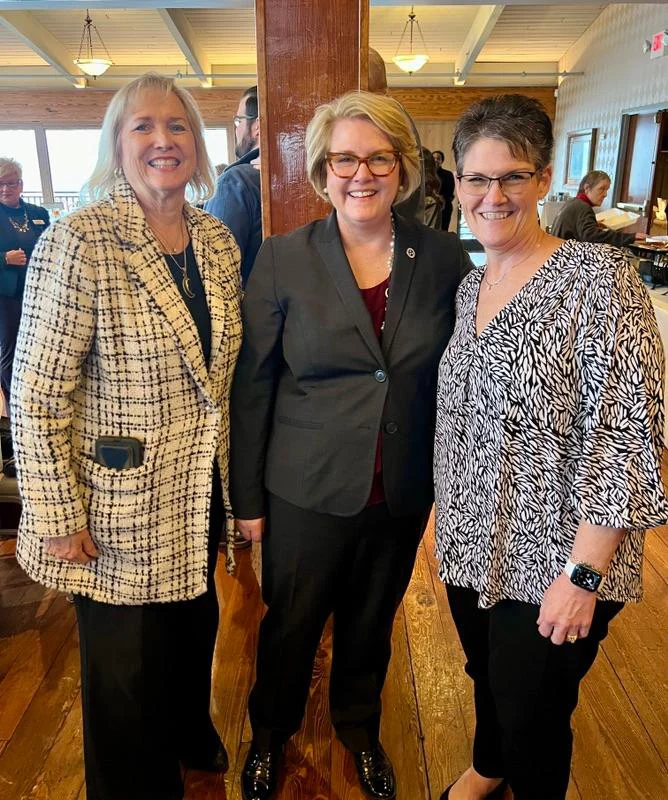

If our office can ever be of service to you or your family, please don’t hesitate to contact us. On the left is Carly Nelson, my Legislative Assistant. On the right is Debbie Gazzaway, our Research Analyst for the Transportation and Safety Committee. We can help with issues with a state department, information on legislation, setting up a tour of the Capitol or scheduling an appointment or speaking engagements.
For information on State Senators including phone numbers and email addresses, click Tennessee State Senators.
For House members, click Tennessee House Members
For all other information on the General Assembly including legislation, schedules and videos, click Tennessee General Assembly
As always thank you for continued support!
Sincerely,
Becky Massey
District 6 Senator
615-741-1648
sen.becky.massey@capitol.tn.gov
